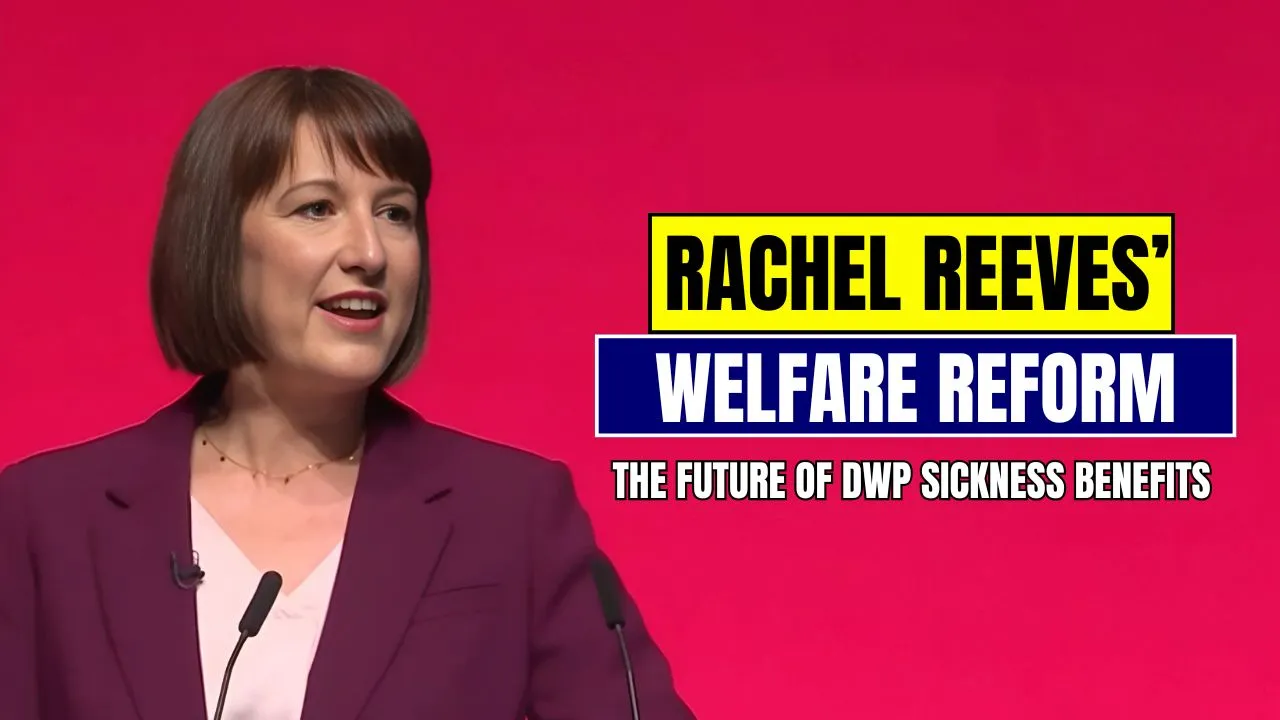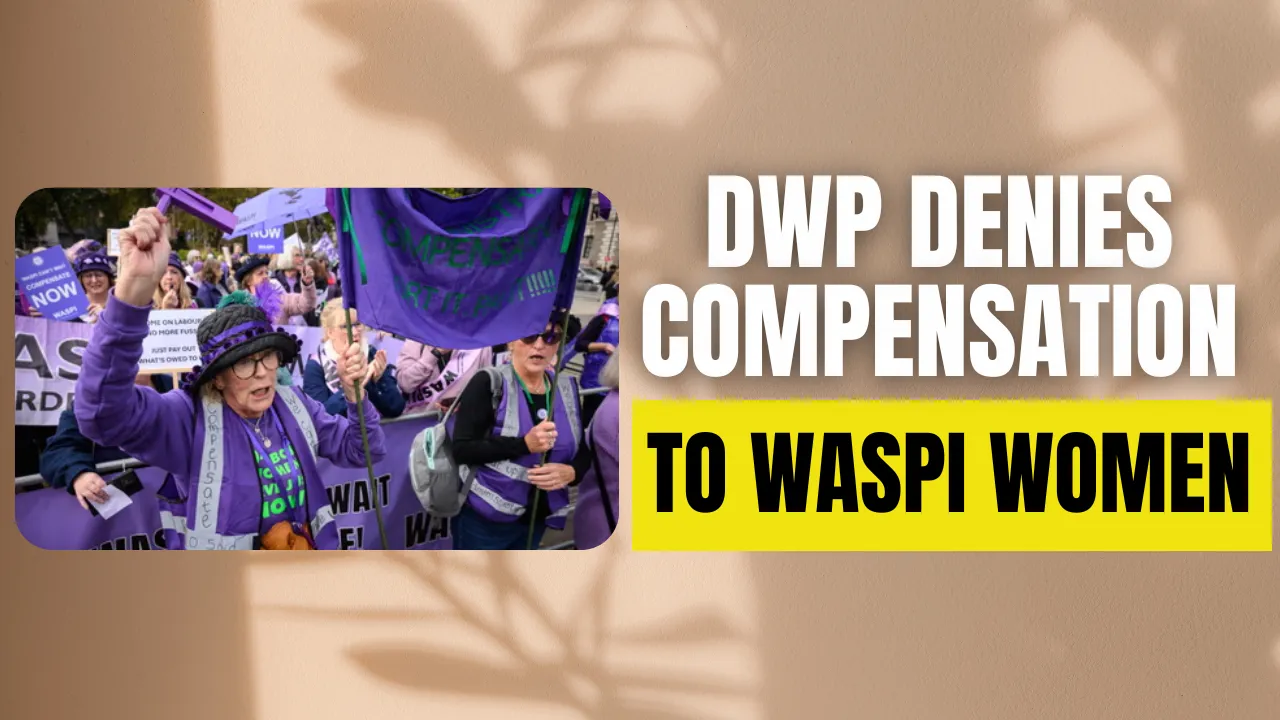Rachel Reeves’ Welfare Reform: Rachel Reeves, the Chancellor in Labour’s government, has announced a significant reform of the DWP Sickness Benefits system. The initiative aims to reduce dependency on welfare, encourage employment, and clamp down on fraud. With millions of people currently out of work due to health-related issues, the government believes the current system needs urgent restructuring.
Reeves’ plan includes cutting benefits for those considered too ill to work, changing how the Department for Work and Pensions (DWP) operates, and introducing tougher measures against fraud. The announcement has sparked widespread debate, with supporters arguing that it will restore fairness and efficiency to the welfare system, while critics warn that it could harm vulnerable individuals who genuinely need support. This article explores the key aspects of these proposed changes, their implications, and the different perspectives surrounding them.
Overview of Key Changes in DWP Sickness Benefits
| Proposed Change | Details |
| Reforming Sickness Benefits | Plans to reduce benefits for those deemed fit for work, possibly replacing cash payments with vouchers. |
| Renaming the DWP | The Department for Work and Pensions (DWP) will be rebranded as the “Department for Work” to emphasize employment. |
| Strengthening Fraud Controls | New measures to prevent and recover fraudulently claimed welfare payments. |
| Driving Licence Revocation | Those caught committing welfare fraud may lose their driving licences. |
| Direct Deductions from Bank Accounts | The government may withdraw funds directly from fraudsters’ accounts. |
| New Legal Powers for Authorities | A proposed law will allow officials to reclaim lost taxpayer money. |
Reforming DWP Sickness Benefits – What’s Changing?
One of the most controversial elements of Rachel Reeves’ welfare reform is the reduction in DWP Sickness Benefits. The government is reviewing whether all individuals who currently receive these benefits should continue to do so. There is also discussion about replacing cash benefits with vouchers, ensuring that financial support is used specifically for essential needs rather than discretionary spending.
The government argues that welfare spending has reached unsustainable levels and must be redirected to those who are genuinely unable to work. The aim is to create a system where financial assistance is available for those in genuine need, while encouraging others to re-enter the workforce if they are physically capable.
However, critics argue that these changes could disproportionately affect people with chronic illnesses and disabilities, making it harder for them to meet their daily needs. Disability rights groups are concerned that the reforms could lead to stricter eligibility assessments, potentially resulting in wrongful benefit reductions for people who cannot work.
Transforming the DWP – The Push for Employment
The reforms are not just about reducing DWP Sickness Benefits; they also include a major rebranding of the DWP itself. The government plans to rename it the “Department for Work”, signaling a shift in focus from providing welfare support to actively promoting employment.
This change aligns with Labour’s broader strategy to reduce reliance on state support and encourage self-sufficiency. The new department is expected to place greater emphasis on job training programs, employment assistance, and stricter eligibility criteria for receiving benefits.
Supporters of this move believe it will prioritize job creation over long-term welfare dependency, helping more people find sustainable employment. However, critics argue that it could penalize individuals with legitimate health concerns who are unable to work but may be pressured into unsuitable jobs.
Tackling Welfare Fraud – New Enforcement Measures
A major aspect of the reform is a tougher stance on welfare fraud. Reeves has announced a series of measures designed to identify and penalize those who abuse the system. The government has highlighted that fraudulent claims cost taxpayers billions of pounds each year, and these losses must be recovered to ensure fair distribution of resources.
Key Anti-Fraud Initiatives:
- Revoking Driving Licences – People found guilty of fraudulently claiming DWP Sickness Benefits could have their driving privileges revoked.
- Bank Account Deductions – The government may withdraw funds directly from fraudsters’ bank accounts to recover fraudulently claimed welfare payments.
- New Legal Framework – A forthcoming law will give officials greater authority to track down and recover fraudulently obtained benefits, with a goal of reclaiming £1.5 billion over the next five years.
While these measures are widely supported by taxpayers, some legal experts argue that direct bank deductions and licence revocations must be carefully implemented to prevent innocent individuals from being wrongly penalized.
The Debate – Supporters vs. Critics
The DWP Sickness Benefits reform has triggered intense debate, with strong arguments from both supporters and opponents.
Arguments in Favor of the Reform:
- Prevents fraud and misuse – The government estimates that fraud and errors cost the UK billions each year, which could be redirected to essential public services.
- Encourages employment – By reducing dependency on benefits, more people may seek job opportunities and contribute to the economy.
- Protects taxpayer money – Ensuring that only those in genuine need receive benefits prevents excessive welfare spending.
Arguments Against the Reform:
- Could harm vulnerable individuals – People with chronic illnesses and disabilities may struggle to meet stricter eligibility criteria.
- Risk of wrongful accusations – Some fear that aggressive anti-fraud measures could unfairly penalize legitimate claimants.
- Loss of financial independence – Replacing cash benefits with vouchers may limit personal choice and increase bureaucratic complications.
The success of these reforms will largely depend on how fairly they are implemented and whether adequate safeguards are in place to protect vulnerable individuals.
What Happens Next?
The government has outlined its vision, but many details remain unclear. There is ongoing debate over which benefits will be reduced, how fraud investigations will be conducted, and when these changes will take effect.
In the coming months, Labour will likely face significant political pressure from opposition parties, advocacy groups, and the public. The challenge will be finding a balance between encouraging employment and ensuring that welfare remains accessible to those who truly need it.
The government will also have to demonstrate that fraud prevention measures are fair and justified, avoiding policies that could disproportionately harm vulnerable individuals.
Frequently Asked Questions (FAQs)
1. What are the main changes to DWP Sickness Benefits?
2. How will welfare fraud be addressed?
3. Why is the DWP being renamed?
4. Who will be most affected by these reforms?
5. When will these changes take effect?
Final Thoughts
Rachel Reeves’ DWP Sickness Benefits reform is one of the most significant welfare policy changes in recent years. While the government aims to prevent fraud, reduce state dependency, and encourage employment, critics fear that vulnerable individuals may be unfairly impacted.
As discussions continue, it will be critical for policymakers to ensure that genuine welfare claimants are protected while fraudulent claims are eliminated. The true impact of these reforms will become clear in the coming months as the government provides more details and the UK public reacts to these sweeping changes.






